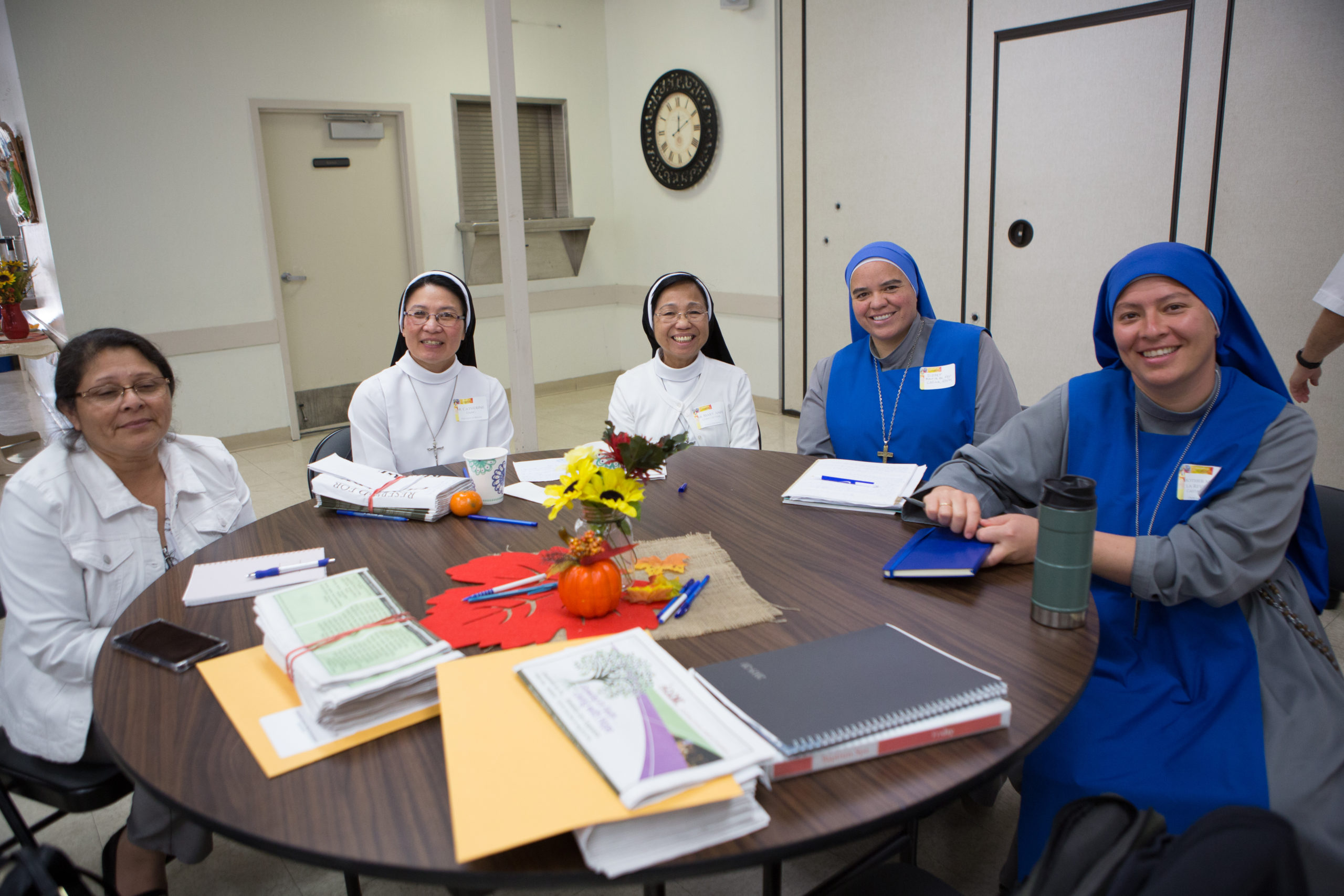
FORMS OF CONSECRATED LIFE WITHIN THE DIOCESE OF SAN JOSÉ
Within the Church, consecrated life is a special sign of the mystery of the Kingdom. Christ proposes the evangelical counsels, in their great variety, to every disciple. “The perfection of charity, to which all the faithful are called, entails for those who freely follow the call to consecrated life the obligation of practicing chastity in celibacy for the sake of the Kingdom, poverty and obedience. It is the profession of these counsels, within a permanent state of life recognized by the Church, that characterizes the life consecrated to God”. CCC 915
Those who are on this “narrower” path encourage others by their example and bear striking witness “that the world cannot be transfigured and offered to God without the spirit of the beatitudes.” The Catechism of the Catholic Church 932
RELIGIOUS INSTITUTE
Religious institutes can be separated into apostolic and contemplative congregations. “Religious institutes are societies in which members pronounce public vows (perpetual or temporary), live in community and share financial sustainability. Religious render a public witness to Christ and to the Church, which entails a separation from the world proper to the character and purpose of each institute.”
- Contemplative religious communities serve God through meditation, prayer and solitude. These groups are known as “cloistered” orders. Contemplative congregations live a life of cloister, constant prayer, offering of self and the daily recitation of the Liturgy of the Hours. Women who belong to this type of a religious community are called nuns and the men are called monks.
- Apostolic or “active” orders/congregations are formed by women and men who are active in the world, serving others in a variety of ministries and apostolates. Women who belong to an apostolic religious community are called Sisters and the men are called Brothers unless they are ordained priests.
Each religious order has a special charism which forms its identity and mission. The charism of an institute has been envisioned and transmitted by the founder or foundress and is the driving force of spirit that is at the heart of the congregation. The variety of charisms of these congregations have been discerned by the Church and constitute the unique identity, mission, spirituality, and way of life of these congregations and contribute to the richness and spiritual life of the diocese.
OTHER FORMS OF CONSECRATED LIFE
Other forms of consecrated life include those called to be hermits through a live of seclusion from the world, in solitude, prayer, and penance, in praise of God and for the salvation of others. Photo
Consecrated virgins are women who dedicate their lives to God while continuing to live in the world. The call to a life as a consecrated virgin is distinct from other forms of consecrated life, in that it is entered by the Prayer of Consecration rather than by vows or promises. Characterized by a spousal spirituality with Christ, the consecrated virgin lives individually under the direction of the diocesan bishop, dedicates her prayer to the mission of the Church and the people of God, wears a ring of consecration and earns her own living. (See Canon 604).
For anyone interested in pursuing a call to consecrated virginity in the diocese of San Jose, or wishing more information on consecrated life, please contact Sr. Ellen Hess, VDMF Delegate to Religious at ellen.hess@dsj.org
OTHER RESOURCES
DSJ Vocations Resource Page: Discerning for Religious Life
Vita Consecrata for more information on Consecrated Life
LCWR.org (leadership Conference of Women Religious
CMSM.org (The Conference of Major Superiors of Men)
